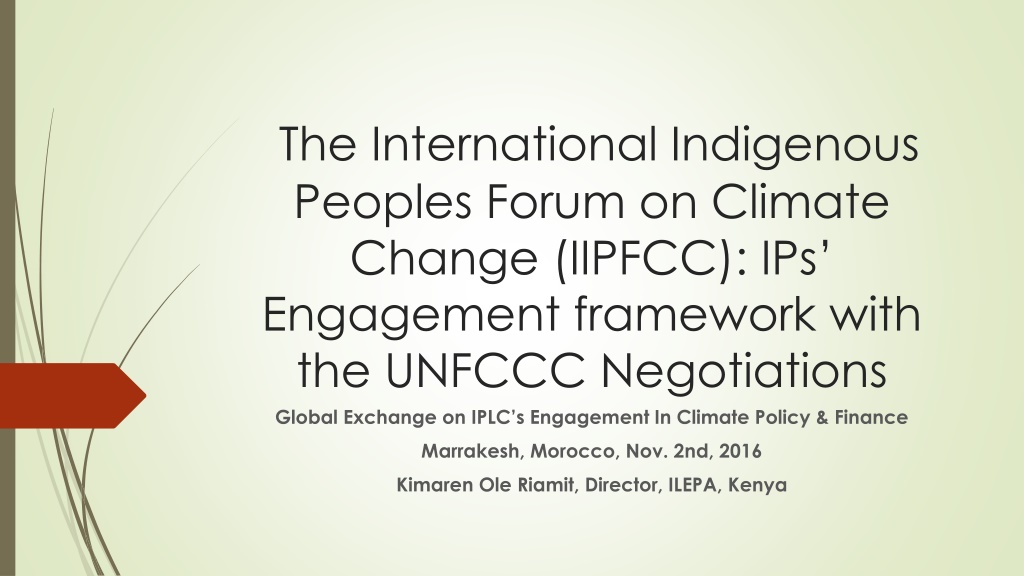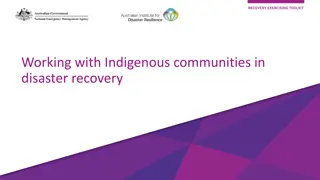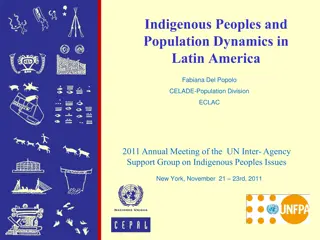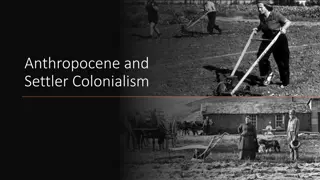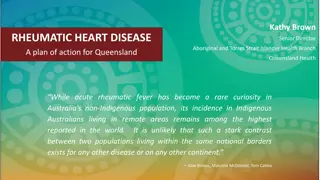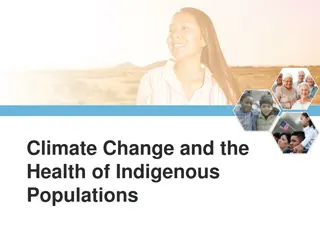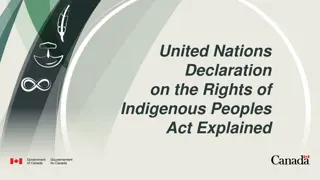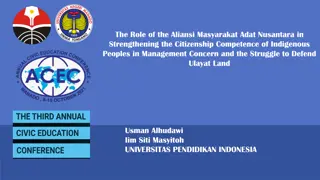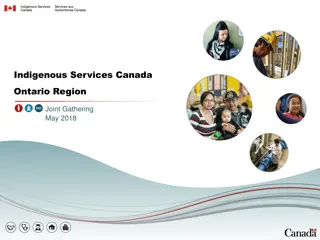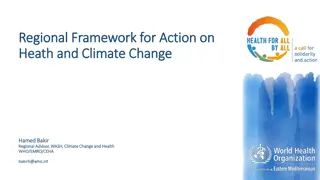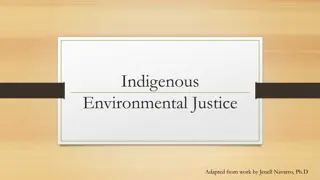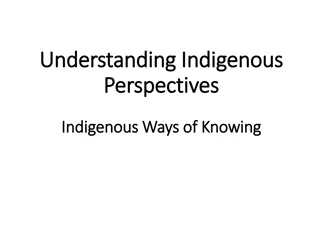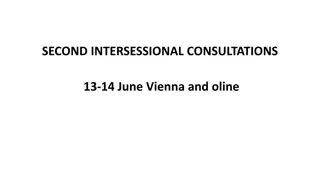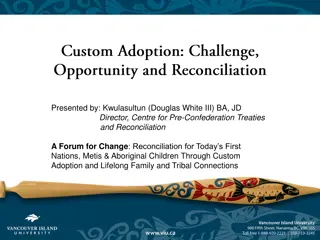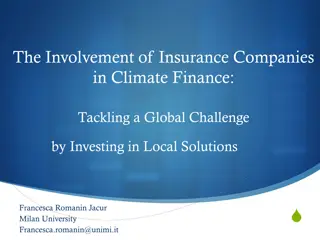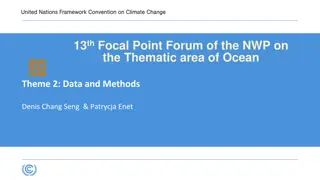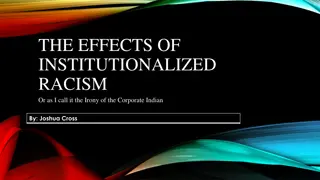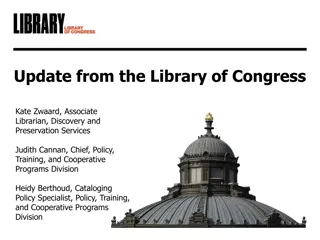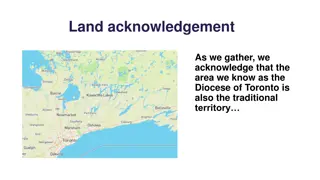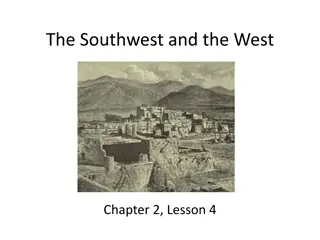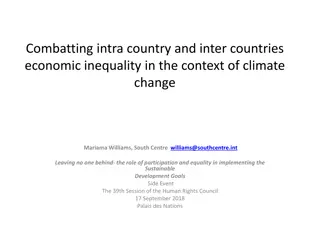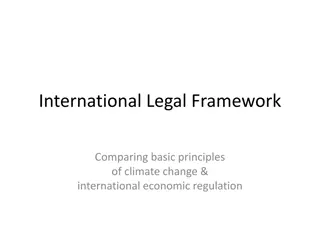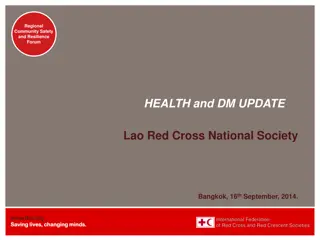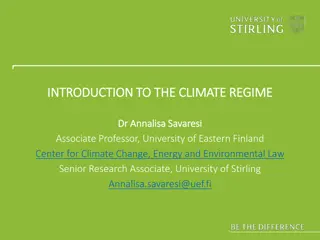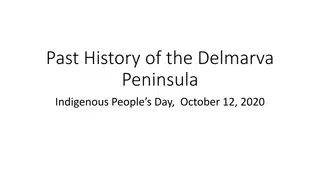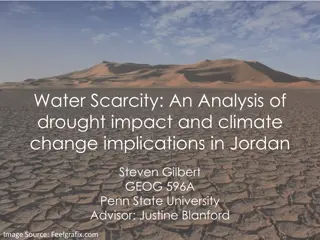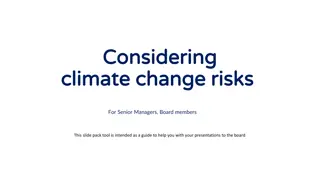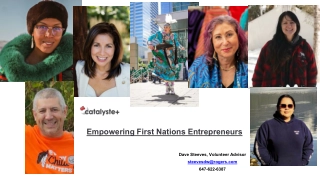International Indigenous Peoples Forum on Climate Change (IIPFCC) Engagement Framework
The IIPFCC is a platform where indigenous peoples globally come together during UNFCCC negotiations to voice their concerns and shape outcomes. The forum provides a safe space for consensus-building on shared issues. Co-chaired by representatives from different regional groupings, the IIPFCC operates through a caucus structure, approving joint political statements and coordinating actions like lobbying, drafting strategies, and engaging with state parties.
Uploaded on Oct 05, 2024 | 0 Views
Download Presentation

Please find below an Image/Link to download the presentation.
The content on the website is provided AS IS for your information and personal use only. It may not be sold, licensed, or shared on other websites without obtaining consent from the author. Download presentation by click this link. If you encounter any issues during the download, it is possible that the publisher has removed the file from their server.
E N D
Presentation Transcript
The International Indigenous Peoples Forum on Climate Change (IIPFCC): IPs Engagement framework with the UNFCCC Negotiations Global Exchange on IPLC s Engagement In Climate Policy & Finance Marrakesh, Morocco, Nov. 2nd, 2016 Kimaren Ole Riamit, Director, ILEPA, Kenya
International Indigenous Peoples Forum on Climate Change (IIPFCC) This is an Open platform bringing together indigenous peoples of the world following climate change negotiations under the UNFCCC The forum crystallized in Copenhagen COP15 as a powerful space for amplification of indigenous Peoples voice(s) to influence UNFCCC outcomes
IIPFCC Cont. it soon became clear that IPs across the globe shared certain cross-cutting concerns and interests The forum became a safe space for IPs to develop consensus on issues of common concern under the UNFCCC
The organization The forum is convened as a Caucus during UNFCCC Inter-sessionals and/or during COPs Historically, the forum nominated two-Co-chairs, - one Anglophone and one Spanish - who coordinate the caucus activities and chair meetings for at least one calendar year A third Francophone Co-chair was introduced in readiness for Paris COP21 and now Marrakesh, COP22 two French speaking COP Presidency The Co-chairs rotated across the seven regional groupings of IPs based on language i.e English, Spanish and/ French The region whose turn it is to Co-chair nominates a competent co-chair
IIPFCCs Way of Doing Business The Caucus minutes are recorded as decisions of the IIPFCC The caucus is the topmost structure for approval of joint IPs political statement and specific textual language for negotiations The Caucus operationalizes its drafting and lobbying strategies through thematic working groups organized around specific agenda items under considerations in UNFCCC sessions Nominates speakers for joint IPs statements during opening and closing plenaries Coordinates bilateral engagement with state parties and other interest groups with IPs through face to face, hosting delegation at the caucus Coordinates joint IPs actions such as Press releases and demonstrations
Focal Point Nexus to UNFCCC Engagement Two focal points one Anglophone and Francohone - for Indigenous Peoples Organization is also nominated by the IIPCCC The FP serves as communication link between IPs as constituency and the UNFCCC Secretariat - providing forward and backward linkages Coordinates submissions and statements from IIPFCCC to the UNFCCC Secretariat Coordinates meetings with the co- chairs of the various UNFCCC negotiations streams Manage an IPOs dedicated list serve
Global Steering Committee (GSC) Established by the IIPFCCC during COP19, in Warsaw Arose out of the need to put in place a representative global IPs body with a mandate from the IIPFCC to negotiate with external parties interested in supporting IPs global issues outside of UNFCCC sessions Comprised of three Co-chairs Spanish Anglophone and Francophone and representatives from 7 regional IPs blocks
GSC .. Negotiates for joint global partnerships, funding and coordination of such joint IPs activities related to the UNFCCC negotiations Supported by two Technical team members, who synthesize regional position papers into an integrated IPs position and analyze UNFCCC decisions from an IP perspective
Regional Representations/Focal Points 1. Asia; 2. Africa; 3. North America; 4. Latin America; 5. Russia/Eastern Europe; 6. Arctic 7. Pacific.
Functions of Regional Organizations Organize and facilitate regional consultations and feedback and identification of priority themes for relevant to COP Sessions agenda Organize and facilitate capacity-building workshops Enhance government-IP interaction and dialogue at national and regional levels Undertake logistical activities for shared regional activities facilitate the identification/selection of regional representatives whenever shared funding is accessible and coordinate travel arrangements undertake communication and information sharing
The Informal Structure for Global IPs coordination under the UNFCCC International Indigenous Peoples Forum on Climate Change (IIPFCC) International Indigenous Peoples Caucus on Climate Change - IIPCCC Global Steering Committee Thematic working groups Technical Team IPOs Focal Point Regional Caucuses 7 Regional Representative Organizations/FP
Key Gains of IPs under the UNFCCC Indigenous Peoples/organizations are officially recognized as active observer constituency under the UNFCCC negotiation framework The Cancun REDD+ decisions on safeguards recognize Indigenous Peoples rights with reference to the UNDRIP The safeguards elements make reference to customary tenure, full and effective participation The Warsaw decisions makes reference to non-carbon benefits and community based monitoring The Paris Agreement and decision recognize and calls for the respect IPs rights and incorporation of Indigenous Peoples knowledge in climate change intervention Accessed global funding for joint IPs activities under the UNFCCC
